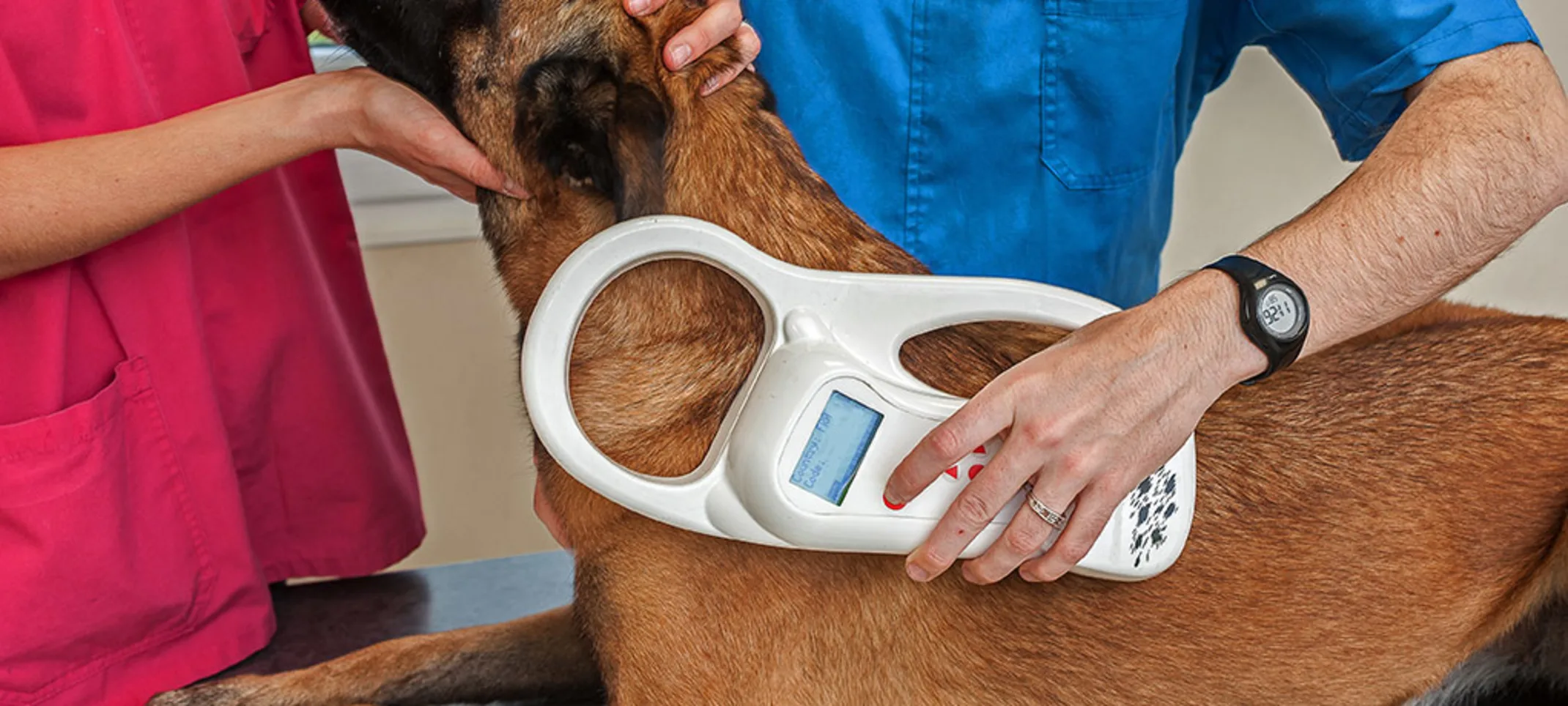Blue Ridge Veterinary Associates
Microchipping
Microchip identification is the most reliable way to reunite lost pets with their owners.

Overview
Microchip identification helps return an estimated 8,000 lost cats, dogs, and other animals to their homes every day. Pet ID chips are the most reliable way to reunite pets with their owners and provide peace of mind.
Why should I microchip my pet?
Microchip identification is the most reliable way to find lost pets and return them home with their owners. The procedure is safe, easy, and inexpensive.
When should I microchip my pet?
Some owners feel that their pet doesn't need identification because they stay indoors, but in our experience, these are the most likely to become lost when they accidentally get outside. As separation from your cat or dog can happen all too easily, permanent identification by microchipping is critical. Every pet should have microchip identification as the procedure can be done at any age.
How does microchipping work?
The small microchip (the size of a grain of rice) is injected under the skin between the shoulder blades of your pet in a relatively harmless veterinary procedure. The chip is permanent, lasting the whole life of the pet. Your information has to be registered with your bar code number so that you can be contacted if your pet ever becomes lost.
If a pet is found, all animal care facilities (shelters, hospitals, etc.) will scan the pet for a microchip using a special microchip reader that is simply waved over the skin. Once a microchip is found, a special hotline is called, and the lost pet is reported. The pet owner is then called immediately and given the contact information about where to pick up their pet.
Looking for your pet? Click here to access the Universal Pet Microchip Lookup.
Microchipping in Purcellville
Protect Your Pets with Microchips
Even the most careful pet owners can face problems from pets jumping a fence or slipping out of the back door. Even the most well-trained pet might escape their leash or accidentally wander out of your backyard. When this happens, your pet may not be able to find their way back to you without help. Microchips can help you find your pet faster in any of these situations.
Call (540) 269-4656 or contact us online to schedule an appointment or to learn more.
What Are Microchips?
About the size of a grain of rice, microchips hold identification and contact information for your pet. When scanned, the microchip will provide this information to the person who found your pet, allowing them to contact you to let you know that your pet has been found. Most veterinary hospitals and animal rescues will scan recovered pets for microchips in order to check if found pets belong to someone. Having your pet microchipped can help get your pet back home sooner!
The benefits of microchipping include:
They are long-lasting and stay active for the entirety of your pet’s life
They help you find your pet if they are separated from you
They provide identification for your pet if they are stolen
They contain information about health conditions or medications
Microchipping: Implantation
Because microchips are so small, the implantation process is very quick and easy. The implantation process involves about the same amount of pain as that of a vaccination. However, if you’re worried about excessive pain, we are able to implant your pet’s microchip while they are put under anesthesia for spay or neutering procedures.
Microchips are typically placed under the skin between your pet’s shoulder blades. There’s a small chance that your pet’s microchip will move away from its initial placement, but typically your pet’s body will bond to the chip within a day, holding it in place for years to come.
If my pet is microchipped, do they still need to wear a collar?
Yes! Microchips, while very convenient, are considered to be a backup option for identification because you need a special scanner to read the microchip. A collar and tags are readable by everyone, while a microchip can only be read by those who have a scanner, like animal control officers, animal shelters, and veterinary clinics.
Additionally, it’s up to you to keep your pet’s microchip registered and kept up to date with your current contact information. If you don’t keep your pet’s microchip updated, your pet may not be able to be identified in a timely fashion.
Microchip Your Indoor Pets
Even if your pet isn’t allowed to go outside, it’s important to microchip your indoor pets. For example, if there’s a natural disaster or fire, there’s a chance that your pet could be separated from you and your family. In these cases, a microchipped pet could be reunited with you much quicker.
Questions about microchipping your pet? Call us at (540) 269-4656 or contact us online so we can help.
